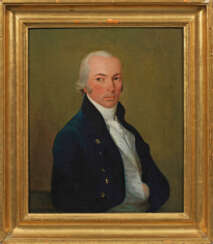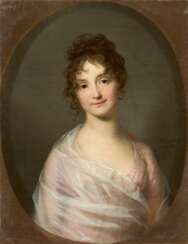August Tischbein (1750 - 1812) — Auction price
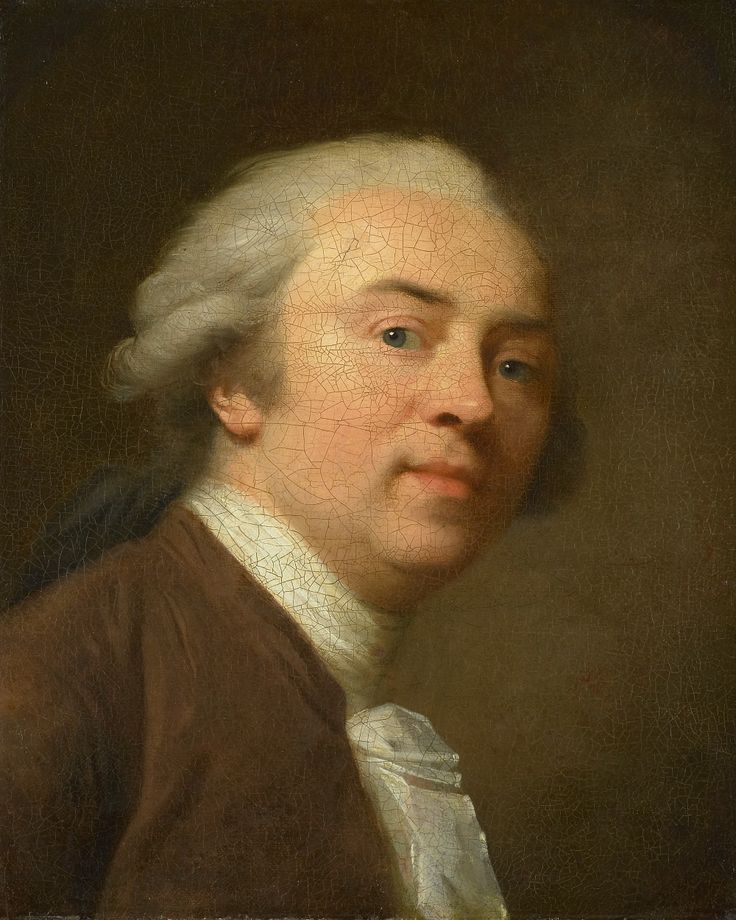
Johann Friedrich August Tischbein was a German painter of the last quarter of the 18th and early 19th centuries. He is known as an academic painter of the Classical era, specializing in portraits, a representative of a large dynasty of artists.
August Tischbein was court painter to Prince Friedrich Karl August and Prince Leopold III Friedrich Franz. He traveled to Italy, where he improved his skills in portrait painting, and achieved success in Berlin and Dresden. In 1799, the artist became director of the Academy of Fine Arts in Leipzig. From 1806 to 1808 he worked in St. Petersburg, where he created portraits of courtiers and representatives of the aristocracy. His works are characterized by strict composition, exquisite coloring and sentimental style of the era. Several of his paintings can be found in the St. Petersburg Hermitage.


Johann Friedrich August Tischbein was a German painter of the last quarter of the 18th and early 19th centuries. He is known as an academic painter of the Classical era, specializing in portraits, a representative of a large dynasty of artists.
August Tischbein was court painter to Prince Friedrich Karl August and Prince Leopold III Friedrich Franz. He traveled to Italy, where he improved his skills in portrait painting, and achieved success in Berlin and Dresden. In 1799, the artist became director of the Academy of Fine Arts in Leipzig. From 1806 to 1808 he worked in St. Petersburg, where he created portraits of courtiers and representatives of the aristocracy. His works are characterized by strict composition, exquisite coloring and sentimental style of the era. Several of his paintings can be found in the St. Petersburg Hermitage.
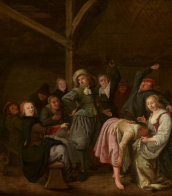

Johann Friedrich August Tischbein was a German painter of the last quarter of the 18th and early 19th centuries. He is known as an academic painter of the Classical era, specializing in portraits, a representative of a large dynasty of artists.
August Tischbein was court painter to Prince Friedrich Karl August and Prince Leopold III Friedrich Franz. He traveled to Italy, where he improved his skills in portrait painting, and achieved success in Berlin and Dresden. In 1799, the artist became director of the Academy of Fine Arts in Leipzig. From 1806 to 1808 he worked in St. Petersburg, where he created portraits of courtiers and representatives of the aristocracy. His works are characterized by strict composition, exquisite coloring and sentimental style of the era. Several of his paintings can be found in the St. Petersburg Hermitage.
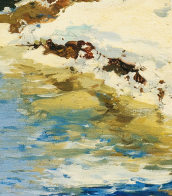

Johann Friedrich August Tischbein was a German painter of the last quarter of the 18th and early 19th centuries. He is known as an academic painter of the Classical era, specializing in portraits, a representative of a large dynasty of artists.
August Tischbein was court painter to Prince Friedrich Karl August and Prince Leopold III Friedrich Franz. He traveled to Italy, where he improved his skills in portrait painting, and achieved success in Berlin and Dresden. In 1799, the artist became director of the Academy of Fine Arts in Leipzig. From 1806 to 1808 he worked in St. Petersburg, where he created portraits of courtiers and representatives of the aristocracy. His works are characterized by strict composition, exquisite coloring and sentimental style of the era. Several of his paintings can be found in the St. Petersburg Hermitage.
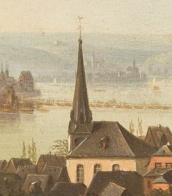

Johann Friedrich August Tischbein was a German painter of the last quarter of the 18th and early 19th centuries. He is known as an academic painter of the Classical era, specializing in portraits, a representative of a large dynasty of artists.
August Tischbein was court painter to Prince Friedrich Karl August and Prince Leopold III Friedrich Franz. He traveled to Italy, where he improved his skills in portrait painting, and achieved success in Berlin and Dresden. In 1799, the artist became director of the Academy of Fine Arts in Leipzig. From 1806 to 1808 he worked in St. Petersburg, where he created portraits of courtiers and representatives of the aristocracy. His works are characterized by strict composition, exquisite coloring and sentimental style of the era. Several of his paintings can be found in the St. Petersburg Hermitage.

